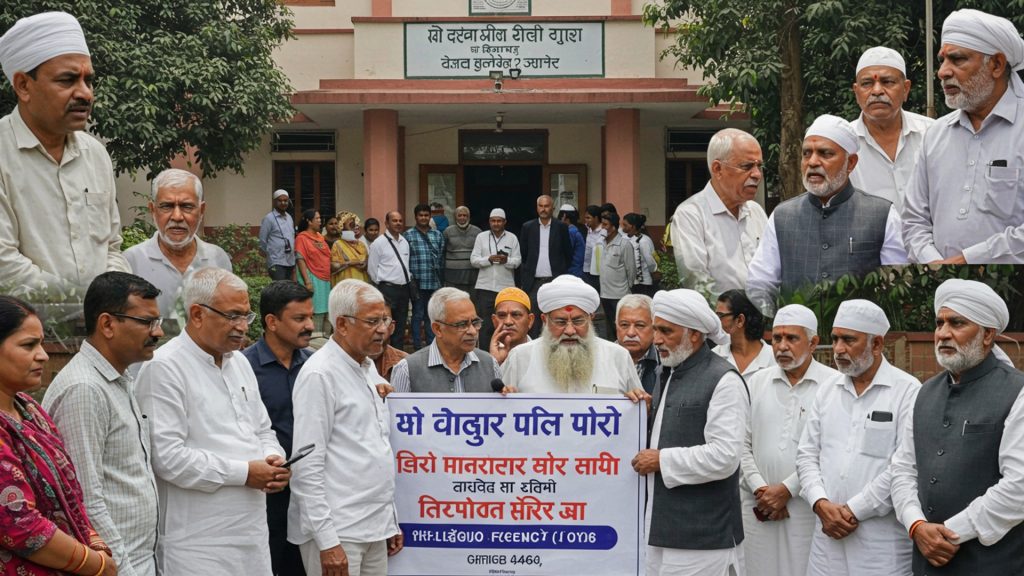Chhattisgarh is poised to pass a much stricter anti-conversion law, a move immediately sparking widespread debate and disagreement across the state. This significant legal change, aimed at controlling religious conversions, raises serious questions about individual freedom and religious choice, drawing sharp criticism from various groups who argue it could limit basic rights. As the state government pushes for its approval, the proposed law becomes a central point of discussion, dividing public opinion and setting the stage for big legal challenges.
Understanding the Current Law
Chhattisgarh has had a law to address religious conversions since 1968, known as the Chhattisgarh Freedom of Religion Act. This law aims to prevent conversions that happen due to force, fraud, or unfair pressure. While this law is already in place, the state government has indicated that it needs to be made stronger. This existing law penalizes forced religious conversions. Over the years, there have been efforts to amend this law. For example, in 2006, a bill was introduced that proposed changes, including a requirement for people to seek permission from the District Magistrate 30 days before converting. But, that specific amendment did not become a full law. The government has stated that the existing law needs to be more “effective and comprehensive.”
Why a Stricter Law is Being Proposed
The push for a new, stricter law comes from concerns about what officials describe as “illegal conversions.” Chief Minister Vishnu Deo Sai stated that while India is a secular country and people can choose their religion, some people are converting others, especially poor individuals, by misleading them or offering benefits like education. He believes this is wrong and should be stopped. A Member of the Legislative Assembly (MLA) from the ruling party, Ajay Chandrakar, has alleged that certain groups, including some non-governmental organizations (NGOs), are involved in conversion activities. He claimed that “faith healing meetings” are being held to lure vulnerable people with various temptations. He also stated that some NGOs receive money from other countries and use it for religious conversions. The government aims to bring the entire conversion process under a single rule, meaning conversions outside this rule would not be legally recognized. action would be taken against those who convert others through pressure or enticement. There have also been reports of disagreements and violent incidents related to religious conversions in tribal areas of the state, such as Bastar and Jashpur. For example, in 2023, there were conflicts in the Narayanpur area of Bastar over conversions from local tribal beliefs to Christianity. These events have contributed to the government’s decision to create a stronger law.
Key Changes Expected in the New Law
The proposed law is expected to introduce several tougher provisions compared to the 1968 Act. The government intends to replace the existing law with new legislation. Here are some anticipated changes:
- Expanded Definitions: The new law is likely to broaden the definitions of “inducement” and “forced conversion.”
- Advance Notice: Individuals intending to convert may need to give a 60-day advance notice to district authorities. The Uttar Pradesh law, which is being considered as a model, also includes similar provisions.
- Stricter Punishments: The bill is expected to impose longer prison terms, possibly up to 10 years, for unreported conversions or those found to be unlawful. Forced conversions involving women, minors. people from Scheduled Castes (SC) and Scheduled Tribes (ST) could face minimum sentences of two years and a maximum of 10 years, along with a fine of 50,000 rupees for mass conversions.
- Legal Recognition of Conversion: If someone changes their religion outside the rules of the new law, their new religion might not be legally recognized.
- Delisting of Converted Tribals: A significant proposed amendment involves excluding individuals from the Scheduled Tribes (ST) category if they convert to another religion. This would mean they would lose access to benefits like reservations meant for ST communities, a provision currently applied only to Scheduled Castes. Chief Minister Vishnu Deo Sai has supported this idea, stating that it would help stop conversions.
The proposed law has been drafted by looking at similar laws in nearly 10 other states, with Uttar Pradesh’s law being a key influence due to its strict nature.
Different Points of View
The move to bring in a stricter anti-conversion law has led to much discussion among different groups. The ruling party believes the new law is essential for several reasons:
“The ruling party says the step is essential to stop ‘dual entitlements’.” “The government stated that it will put an end to conversion by force or allurement.” “The government started formulating a strict and formidable law in early 2024 to avoid such disputes over religious conversions.” “Deputy Chief Minister and Law Minister Arun Sao said the existing law would be made ‘more effective and comprehensive’.”
But, various groups have raised concerns:
- Opposition Parties: The opposition has called the move “politically motivated.” Some have suggested that the government should focus on enforcing the earlier law from 2006 instead of creating new legislation.
- Religious Minorities and Rights Groups: Critics, including Christian organizations, argue that such laws can violate the constitutional right to freedom of religion. They also fear that the law could be used wrongly to target religious minorities and interfere with their ability to freely practice and spread their religion.
- Silence on Reconversion: Some have pointed out that the proposed law seems to be largely silent on “reconversion” (or ‘ghar wapsi’, a term for returning to one’s ancestral religion), only suggesting that district administration be informed in such cases. This raises questions about fairness and equal application of the law.
- Impact on Benefits: The proposal to remove ST benefits for converted tribals is a major point of debate. While proponents argue it stops “dual entitlements,” critics worry it might unfairly target certain communities and strip them of essential protections.
The constitutional validity of anti-conversion laws has been argued in various courts across India.
Current Status and Next Steps
The Chhattisgarh government has confirmed its intention to introduce the new legislation. The Chief Minister announced in March 2025 that a stricter law would soon be introduced. In May 2025, he reiterated that the government would definitely bring a strict law to stop religious conversions. The Deputy Chief Minister and Law Minister Arun Sao has stated that a proposal would be sent to the central government for any necessary national-level changes. The new anti-conversion bill is expected to be presented in the upcoming session of the state assembly. Officials have been working on the plan to make the existing law more stringent, holding many meetings for this purpose. The urgency for this law was highlighted by a recent incident in July 2025 at a railway station, where two nuns and a companion were detained on allegations of attempting to traffic tribal girls for conversion. This incident led to increased communal tension and reinforced the government’s resolve to introduce the stricter law. The government is also looking into auditing NGOs, especially those receiving foreign funds, to address allegations of misuse for conversion activities.

